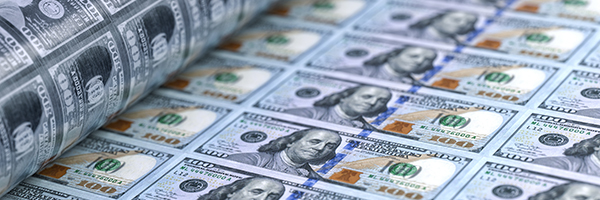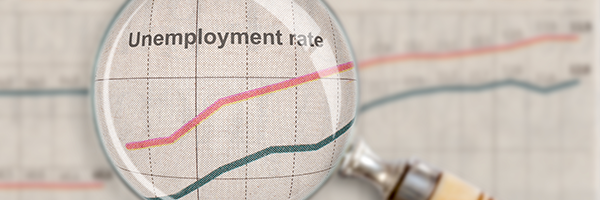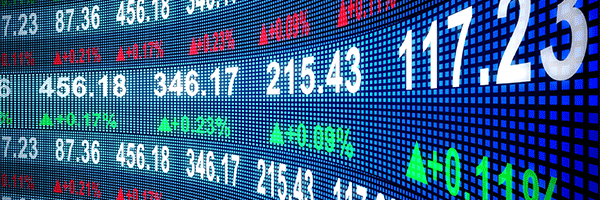Short Term

September 14, 2021 | ALB, CMI, CRWD, Daily JAM, DE, PANW, Short Term |
I found myself humming “I scare myself” this morning as the market continued its September selling. The Dan Hicks and the Hot Licks song pretty much sums up the market action this morning. We all know that stocks go down in September so we’re sending stocks downward. And we all know that September 17 is the Big Bad Day in the month so it’s unreasonable to expect a turn in sentiment before that date. But so far, I’d note, the selling seems “orderly” with the usual candidates bucking the trend and showing up in the green. It’s when those still in the green stocks start tumbling that I’ll really start to worry.

September 4, 2021 | Daily JAM, Short Term, Videos, Volatility |
I’m starting up my videos on JubakAM.com again–this time using YouTube as a platform. My forty-sixth YouTube video “September and October 2021 Worse Than Usual for Investors” went up today. The “solutions” post will go up Sunday.

August 26, 2021 | Daily JAM, Short Term |
More than 2 million options on the September 10-year Treasury expire by the end of trading tomorrow, August 27. That’s 63% of all options open interest in Treasuries. It “looks” like the positioning of those Treasury options is relatively balanced. Bloomberg reports that data from JPMorgan Chase show that the bank’s clients have pulled back on short bets on a steeper yield curve after tomorrow’s speech (10 a.m. New York time) by Fed chair Jerome Powell. But I wouldn’t bet against some extra volatility tomorrow.

August 6, 2021 | Daily JAM, Morning Briefing, Short Term |
This morning the Labor Department released its July jobs report. It showed a gain in non-farm payrolls of 943,000 against 938,000 in June and the 865,000 projected by economists surveyed by Bloomberg. The headline unemployment rate fell to 5.4% from 5.9% in June and a projected 5.7%. But there are good reasons for reading these numbers with even more care than usual.

August 5, 2021 | Daily JAM, Short Term |
With the report of 94 new local infections marking the broadest outbreak since the first in Wuhan in 2019, China imposed new restrictions on travel in 144 of the worst hit areas. The new rules curtail public transit and taxi service, curb train and subway service, and re-imposed quarantines.

August 5, 2021 | Daily JAM, Short Term |
Initial claims for unemployment in regular state programs fell to 385,000 for the week ended July 31. That was a drop of 14,000 from initial claims in the prior week, the Labor Department reported this morning. The 385,000 total was inline with projections from economists surveyed by Bloomberg calling for 383,000 new claims. The monthly jobs report from the Labor Department due tomorrow is forecast to show the U.S. labor market added 870,000 jobs in July. That would slightly exceed the 850,000 jobs added in June. Economists are also projecting that the headline unemployment rate will drop in July after ticking very slightly higher in June.

August 2, 2021 | Daily JAM, Morning Briefing, Short Term |
I’m looking for answers to two big questions that earnings from Amazon (AMZN) and Caterpillar (CAT) left us with last week. In the case of Amazon, where the company reported a slide in revenue growth after a big bump in sales due to everybody ordering everything on line during the Pandemic shutdown, the question is What is the actual sales growth trend once you remove all the plus and minuses from the Pandemic? This isn’t a question just for Amazon, of course. It’s important for figuring out the valuation of everything from Las Vegas hotel and casino play MGM Resorts International (MGM) to streaming champion Netflix (NFLX) to Starbucks (SBUX). The other question left hanging at the end of the week is whether or not we’re about to see a string of companies forecasting lower margins due to rising prices for raw materials. That was the takeaway message from Caterpillar’s (CAT) earnings report.

July 27, 2021 | Daily JAM, MSFT, Short Term, Volatility |
With everything tech (just about) selling off today (along with the rest of the market) and with the shares of the tech companies due to report today dropping as well, I think the odds have improved for a bounce in those reporting companies on earnings surprises. Microsoft (MSFT) is due to report today after the close and I think there’s a good likelihood that the company will post even better than expected numbers from its Azure Cloud business.

July 27, 2021 | Daily JAM, Short Term, Volatility |
With the major indexes all down ahead of tech earnings–and fear up–I’m pulling out my VIX options trade again. The rule here, until modified by reality (pesky little thing) is to buy when complacency drives the “fear index” to 16 or below, and to sell when fear rises and pushed the CBOE S&P 500 Volatility Index (VIX) to 20 or so. This morning selling in the market sent the VIX up to 19.85, close enough for me to 20, and I’m selling the October 20, 2021 Call Options

July 27, 2021 | AAPL, AMD, Daily JAM, MSFT, Short Term, Volatility |
As of 12:15 p.m. the Standard & Poor’s 500 was down .01% and the Dow Jones Industrial Average was lower by 0.75%. Tech stocks were down much more with the NASDAQ Composite off 1.85% and the NASDAQ 100 lower by 1.82%. The tech companies due to report earnings today after the close were all down. Apple (AAPL) was lower by 1.68%. Advanced Micro Devices (AMD) had dropped 2.01%. And Microsoft (MSFT() was off 1.66%.
July 22, 2021 | Daily JAM, Morning Briefing, Short Term, Volatility |
The Standard & Poor’s 500 closed up 0.20% today, July 22. The Dow Jones Industrial Average squeezed out a 0.07% gain. But if you were looking for bigger upside moves, turn your eyes to the technology sector.

July 13, 2021 | Daily JAM, Morning Briefing, Short Term |
The Federal Reserve has said that the current jump in inflation is temporary, a result of post-pandemic glitches in the supply chain. So far the market is going along with that view. But huge jumps in monthly inflation in May and now, this morning, June are treating that confidence.
The consumer price index (CPI) rose 0.9% in June from May and by 5.4% from June 2020, according to the Labor Department today. Excluding more volatile food and energy components, core CPI inflation rose by 4.5% from June 2020. That’s the biggest jump in core inflation since November 1991.












